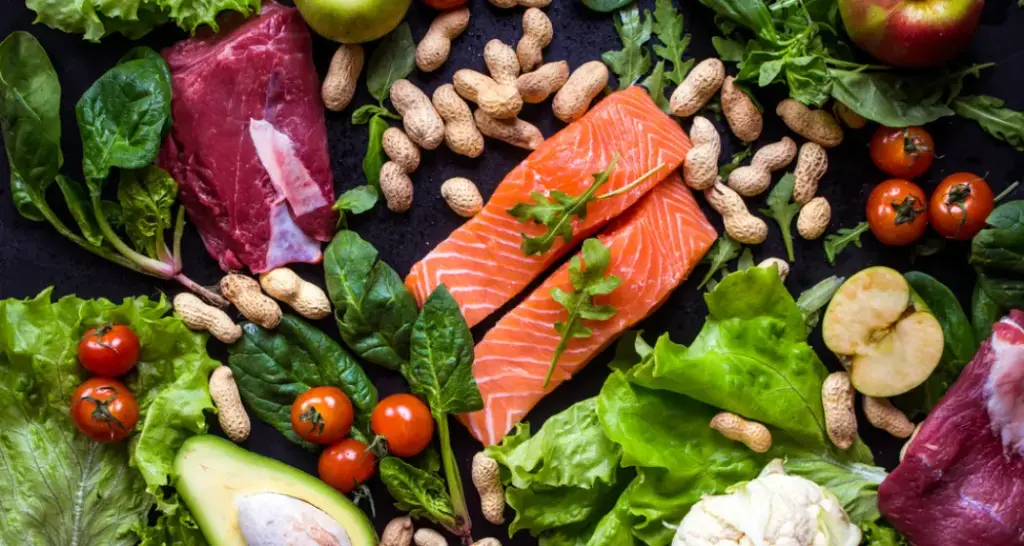Nerve damage and dysfunction resulting from neuropathy can deeply affect a person’s overall well-being and quality of life. While various factors contribute to the onset and progression of neuropathy, diet plays a crucial role. Certain foods can exacerbate neuropathy symptoms, making it essential for sufferers to be aware of dietary triggers. This comprehensive guide explores the worst foods for neuropathy and provides actionable insights to help manage this condition through better dietary choices, focusing on “food for nerve pain.”
Key Takeaways
- Sugary foods can worsen neuropathy symptoms by increasing inflammation and blood sugar levels.
- Alcohol consumption negatively affects the nervous system and can exacerbate neuropathy symptoms.
- Processed foods often have unhealthy fats and additives that can make neuropathy worse.
- Gluten-containing foods may trigger or worsen neuropathy in individuals sensitive to gluten.
- Caffeine can interfere with nerve function and exacerbate neuropathy symptoms.
Understanding Neuropathy and Its Dietary Triggers
Neuropathy refers to various conditions that affect the nerves, causing symptoms like pain, tingling, and numbness. Any neurological disorder, including neuropathy, can be triggered by an unbalanced diet or a sedentary lifestyle. A well-balanced diet boosts essential nutrient intake, improving nerve signal transmission.

How Diet Impacts Neuropathy
Neuropathy symptoms can worsen if your diet includes fatty and gluten-containing foods, inorganic GMO products, and alcoholic or caffeinated drinks. Not following dietary recommendations can lead to various accompanying diseases, affecting mental and physical functions, harming digestion, and raising blood pressure.
Adding magnesium-rich foods to your diet like nuts and leafy greens, seeds, and whole grains, could ease neuropathic symptoms and promote relaxation.
Sugary Foods and Their Impact on Neuropathy
“What’s the best way to treat diabetic nerve pain in feet?” is a question often asked by individuals grappling with the debilitating effects of neuropathy. While changing your diet is important for managing neuropathy symptoms, it’s essential to also explore effective treatments for alleviating foot neuropathy specifically.
Among the best treatments for diabetic neuropathy in feet are regenerative medicine treatments, including platelet rich plasma therapy (PRP), human cellular tissue and Soft Wave Therapy. PRP therapy is a therapy where your own blood plasma is used to help facilitate healing. Soft Wave therapy uses acoustic sound waves that summon your own bodies stem cells within 45 minutes. Soft Wave therapy also enhances angiogenesis, which is the process of forming new capillaries and blood vessels. This is vital to help heal the nerves. .
Additionally, lifestyle modifications such as regular exercise, keeping your blood sugar levels in check, and proper foot care are essential components of managing neuropathy. Alternative therapies like acupuncture and physical therapy may also offer benefits in reducing neuropathic pain and improving nerve function. However, it’s vital to consult to a healthcare professional to determine the most suitable treatment approach tailored to individual needs.
High Sugar Foods to Avoid
Foods high in sugar – especially added sugar – can intensify nerve damage and pain, and can lead to weight gain and inflammation. It’s crucial to avoid sugary foods such as:
- Bakery products
- Sweets
- Chocolate
- Cereals
- Sauces

Effects of Sugar on Nerve Health
Nutritional deficiencies can lead to neuropathy symptoms. Added sugars add flavor but few nutrients, which can exacerbate these deficiencies. Controlling your blood sugar is the number one strategy to prevent neuropathy associated with diabetes. High levels of sugar in the blood are a big reason for neuropathy, so it’s crucial to reduce your intake of sweets and carbohydrates to help manage the condition.
To make your diet better for controlling blood sugar, try switching from refined grains for whole grains and opt for healthy foods like fruits, veggies, and whole grains.
The Dangers of Alcohol for Neuropathy Sufferers
Drinking alcohol can have serious effects on people with neuropathy. Alcoholic drinks harm nerve cells and can worsen cardiovascular, motor, and cognitive functions. Neurologists can identify the specific type of neuropathy caused by excessive alcohol consumption.
However, some diabetologists believe that consuming red organic wine positively affect the whole health state and for strengthen the neurological system. Sufferers of peripheral neuropathy not associated with alcohol may still be able to enjoy alcohol according to health experts.
How Alcohol Affects the Nervous System
Alcoholic neuropathy means severely deteriorated or dysfunctional nerve system symptoms provoked by alcohol addiction. Alcohol, sugar, or yeast-contained ingredients lead to harmful reactions, which increase pinched nerve consequences. Simultaneously, diabetic neuropathy has the same signs, which could be expanded due to unbalanced dietary formulas.
Types of Alcohol to Avoid
These beverages can be harmful to the neurological system. While wine and similar organic drinks may offer some benefits, other types of alcohol can have several negative impacts.
- Damage to brain nerves and their ties
- Increase glucose rates
- Deteriorate cognitive, cardiovascular, movement, and nephrological functions.
Processed Foods: A Hidden Threat to Neuropathy
Processed foods are a significant concern for individuals suffering from neuropathy. These foods often have high levels of unhealthy fats, sugars, and preservatives, which can exacerbate neuropathic symptoms and lead to further health complications. Avoiding processed foods can be a crucial step in managing neuropathy effectively.
Common Processed Foods to Avoid
- Bakery products
- Sweets
- Chocolate
- Cereals
- Pasta
- Sauces
Why Processed Foods Worsen Neuropathy
Processed foods are sources of many health problems due to their saturated fats, spicy ingredients, sugar, and preservatives. These components can deteriorate neurological ailments and complicate normal living activities. Absolutely, pizzas, hamburgers, and French fries are prime examples of foods that people with diabetic neuropathy disorders require to avoid.
If peripheral neurological symptoms remain stable, they can still complicate everyday activities. In such cases, a treating neurologist identifies persistent triggers linked to imbalanced diets and increased foods intake, which develop health problems and deteriorate neurological ailments.
The Role of Gluten in Neuropathy
For individuals with gluten neuropathy, it is crucial to avoid foods containing gluten to prevent exacerbating symptoms. Common gluten-containing foods include:
- Wheat and wheat products
- Barley
- Rye
- Triticale
- Malt
- Brewer’s yeast
Damage to the myelin sheath of peripheral nerves can be caused by gluten neuropathy. Consequently, symptoms start to appear when there’s damage to the myelin.
Gluten neuropathy is a type of neuropathy that results in numbness and pain in the extremities. For individuals with celiac disease and gluten neuropathy, consulting a doctor before starting a gluten-free diet is crucial. This helps to rule out other possible causes of neuropathy.
A study published in 2018 showed that gluten-free diets helped reduce pain associated with gluten neuropathy. In other types of neuropathy, it’s been reported that following a gluten-free diet can reduce neuropathic pain.
Caffeine and Neuropathy: A Risky Combination
Caffeine can enhance neurological impulses and increases work productivity. However, for individuals dealing with neurological dysfunctions like peripheral neuropathy, the effects of caffeine can exacerbate symptoms and hinder recovery. Those with diabetic neuropathy signs should be particularly cautious, as caffeine consumption may intensify painful pulsing reactions in affected areas. Consequently, it’s advisable for individuals with peripheral neuropathy to avoid caffeine-rich foods and beverages, especially those containing peripheral neuropathy coffee.
Caffeinated Beverages to Limit
A neuropathy-recommended diet should avoid:
- Energy drinks
- Coffee
- Tea
- Sweet sodas or cokes
Impact of Caffeine on Neuropathy
Daily caffeine consumption may increase the risk of acute kidney injury related to platinum-salt chemotherapy in thoracic cancer patients. Regularly consuming meals rich in caffeine can exacerbate the painful sensations often associated with the progression of neuropathy symptoms.
Caffeine is known to be tolerated by some individuals with neuropathy. However, continuously consuming meals enriched with caffeine can worsen the painful symptoms commonly seen with the progression of neuropathy.
Can’t Resist Coffee When You Have Peripheral Neuropathy?
Inorganic GMO Products and Neuropathy
Inorganic GMO products containing chemical substances for growth stimulation are not the most dietary choices for treating neuropathy. These foods may offer questionable health benefits due to their disputed chemical content and may not provide the necessary micro and macronutrients for overall well-being.
Examples of Inorganic GMO Foods
- Corn
- Soybeans
- Canola
- Cottonseed oil
Health Risks Associated with GMO Foods
Inorganic GMO products can exacerbate neuropathy symptoms. The chemical substances used in these foods can lead to heightened inflammation and oxidative stress, which are detrimental to nerve health. Additionally, these products may contain pesticide and herbicide residues that further harm the nervous system.
It’s crucial for neuropathy sufferers to be aware of the potential risks associated with consuming inorganic GMO foods and to consider alternative dietary options that support nerve health.
Fast Foods and Their Effects on Neuropathy
Fast foods can lead to several health problems due to their high levels of saturated fats, spicy ingredients, sugar, and preservatives. Indeed, pizzas, hamburgers, and French fries are prime examples of foods that people with diabetic neuropathy require to avoid.
Popular Fast Foods to Avoid
- Pizzas
- Hamburgers
- French fries
- Fried chicken
- Tacos
Why Fast Foods Are Harmful for Neuropathy
Fast food items often lack fiber and nutrient-rich ingredients, leading to digestive issues such as constipation, bloating, and irritable bowel syndrome (IBS). These foods are high in unhealthy fats and sugars, which can exacerbate neuropathy symptoms by increasing inflammation and oxidative stress in the body.
Neuropathy symptoms can worsen if your diet includes fatty and gluten-contained foods, inorganic GMO products, as well as alcoholic and caffeinated drinks.
Conclusion
In conclusion, managing neuropathy effectively requires a comprehensive approach that includes dietary modifications. Avoiding foods high in fats, gluten, and artificial additives, as well as limiting alcohol and caffeine intake, can significantly alleviate neuropathy symptoms. Including nutrient-rich foods like fruits, vegetables, and lean proteins in your diet can enhance overall health and lower the risk of neuropathy progression.
Always seek guidance from a healthcare professional to personalize your dietary choices based according to your specific needs. This ensures the most effective management of neuropathy and promotes better outcomes for your health.
Frequently Asked Questions

Does diet make neuropathy worse?
Neuropathy symptoms may worsen if your diet includes fatty and gluten-containing foods, inorganic GMO products, and drinks containing alcohol and caffeine. Failure to follow dietary recommendations can lead to several accompanying diseases that affect both physical and mental health, causing damage to the digestive system and raising blood pressure.
How do you calm down neuropathy?
o mitigate neuropathy signs, consider following these helpful guidelines: maintain a balanced diet, avoid known dietary triggers, manage blood sugar levels, and consult with a healthcare professional for personalized advice.
What are some foods good for people with neuropathy?
Approved products endorsed by neurological experts provide a diverse selection of nutritious and delicious meal ideas. Incorporating these foods into your diet can lower the risk of malnutrition and enhance the body’s ability to combat neuropathy. These include fruits, vegetables, berries, and some products of animal origin with minimal saccharine rates and neuron-damaging substances.
What foods should be avoided for neuropathy?
Foods to avoid include gluten foods, caffeine drinks, alcohol, fast foods, and inorganic GMO ingredients. These can lead to the ailment expansion and contribute to the development of new health issues.
What is neuropathy?
Neuropathy is a neurological condition characterized by dysfunction and damage to nerves, which affects normal muscle function.
What is the best diet for diabetic neuropathy?
A recommended diet for individuals diagnosed with diabetic neuropathy or those at risk typically includes a variety of fruits, vegetables, berries, and some animal products. Avoid gluten foods, caffeine drinks, alcohol, fast foods, or inorganic GMO ingredients to prevent the ailment expansion and new health problems.


